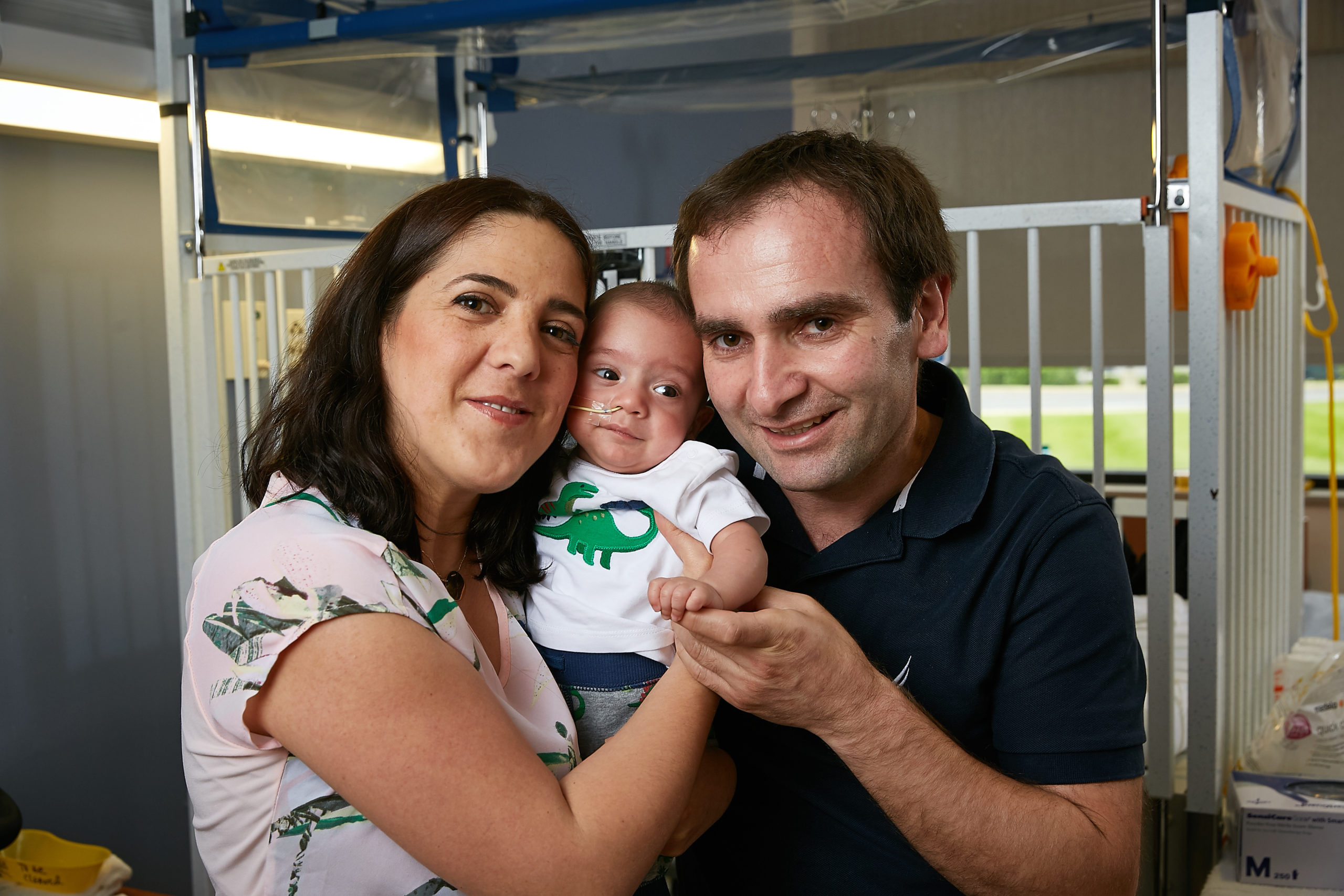
Hysen Hamzaj and Magbule Pllana from Kosovo came to visit family in the United States just as they had done numerous times before. Magbule was a little more than halfway through her pregnancy with the couple’s first child, and they were excited to spend time with family.
Two weeks into their visit, Magbule began to suspect that something was not quite right during a walk near her sister’s house. Suddenly tired, she found it difficult to walk and began to vomit. She slept for a while, but when she woke, her vision was blurred, she was swollen and had a severe headache.
Hysen, who is an ear, nose throat doctor, took his wife’s blood pressure. When the cuff read 206 over 111, he thought it had to be wrong and tried again. The number came back the same, and they headed to the emergency room at a local hospital. The obstetrician on call that night diagnosed Magbule with pre-eclampsia. It was the start of what would be a six-month medical saga.
Doctors wanted to deliver the baby but could not until Magbule’s blood pressure was under control. After she suffered seizures, they could not wait any longer and delivered the baby by c-section. Both mom and baby Aron struggled after delivery. Magbule spent four days in the ICU because her blood pressure was still high, and she was intubated. At one point, her reflexes were so low that Hysen did not think his wife would survive. Slowly, her condition improved, and she was released from the hospital.
Born at just 29 weeks gestation and 2 pounds, 11 ounces, Aron’s prematurity created feeding and breathing difficulties as well as jaundice. The first time Magbule saw him in the neonatal intensive care unit, he was intubated. During his four-month stay at the NICU, he received CPAP therapy, but the resulting scar tissue lowered his lung capacity, and he was ultimately diagnosed with chronic lung disease. The prematurity also caused feeding difficulties, and when he was unable to get sufficient nutrition on his own, doctors inserted a nasogastric tube (NG tube). His weight and breathing troubles stabilized, but he still had a long road ahead of him.
The hospital told Hysen and Magbule that Good Shepherd Rehabilitation Hospital Pediatric Unit had a program that was equipped to help Aron further his recovery. There, he could receive a full complement of specialized physical, occupational and speech therapy. The social worker made the arrangements, and the family was on their way to Good Shepherd. Upon arrival, one thing that struck them was the level of involvement Good Shepherd offered them as parents.
“The environment at Good Shepherd is very hands on with your baby,” said Hysen. “The nurses, therapists and doctors made sure we were part of every aspect of our son’s care. We had been through so much by the time we arrived, and the staff really built our confidence in taking care of Aron.”
“Due to Aron’s complicated medical history, he would often cry, close his eyes, and push the bottle away, as well as fall asleep during feedings because his endurance was so poor,” says Lindsey Nolt, MS, CCC-SLP. “We taught Aron’s parents about stress signs to look for when feeding him, as well as strategies to help improve his endurance for calmer, happier feedings. Aron’s parents were extremely hands-on with him and were always willing to implement any strategies we taught them.”
One month after his arrival at Good Shepherd, 5-month old Aron and his parents were ready to return home, eternally grateful for the care they received.
“Thank you just is not enough,” said Hysen. “It is hard to express the appreciation we feel.”
